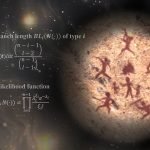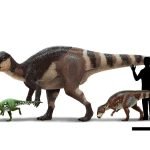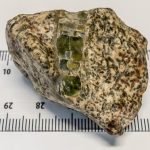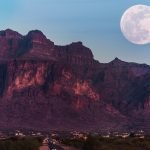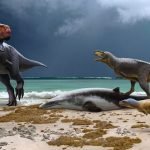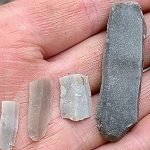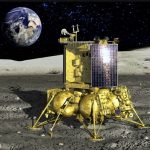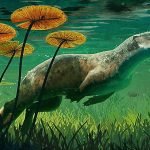What would an ancient Egyptian corpse have smelled like? Pine, balsam and bitumen –...
In 1900 – some 22 years before he discovered the tomb of Tutankhamen – British archaeologist Howard Carter opened another tomb in the Valley...
How our ancestors barely escaped extinction
Scientists have made a groundbreaking discovery that helps us understand a mysterious period in our past.
They found out that there was a time when...
Europe’s unique dinosaurs: Meet the Rhabdodontids
When we think about dinosaurs, we usually imagine famous ones like T-Rex or Triceratops.
But did you know Europe had its own special dinosaurs?
Around 100...
Sahara space rock 4.5 billion years old upends assumptions about the early Solar System
In May 2020, some unusual rocks containing distinctive greenish crystals were found in the Erg Chech sand sea, a dune-filled region of the Sahara...
What is a blue supermoon and how rare is the Aug. 30 event
There’s a blue supermoon in the astronomical forecast for Wednesday, Aug. 30.
Northeastern Global News interviewed Jacqueline McCleary, an assistant physics professor and observational cosmologist...
Were dinosaurs in trouble before the asteroid impact? New study says no.
If you've ever wondered what kind of dinosaurs lived in Africa just before they all disappeared, we've got some exciting news for you!
Scientists in...
A surprising stone age discovery in Norway
Archaeologists recently dug up something amazing in Vinjeøra, a place in southern Trøndelag County, Norway.
Before they began, Archaeologist Silje Elisabeth Fretheim made a fun...
What harm could one coal mine do? 1.7 million Hiroshima bombs of heat for...
This year, the Australian government rejected Clive Palmer's coal mine proposal—but approved three others.
Over 100 more fossil fuel projects are in the decision pipeline.
Why...
Russia’s Luna 25 lander crashed into the Moon
On August 10th, 2023, Roscosmos’ Luna-25 mission launched from the Vostochny Cosmodrome atop Soyuz-2 rocket.
This mission was the first lunar mission to launch from...
How a 23-million-year-old otter-like seal used its whiskers to forage for food
Ever wonder how animals that live in the water find their food?
Well, seals use their whiskers to feel vibrations in the water and locate...


